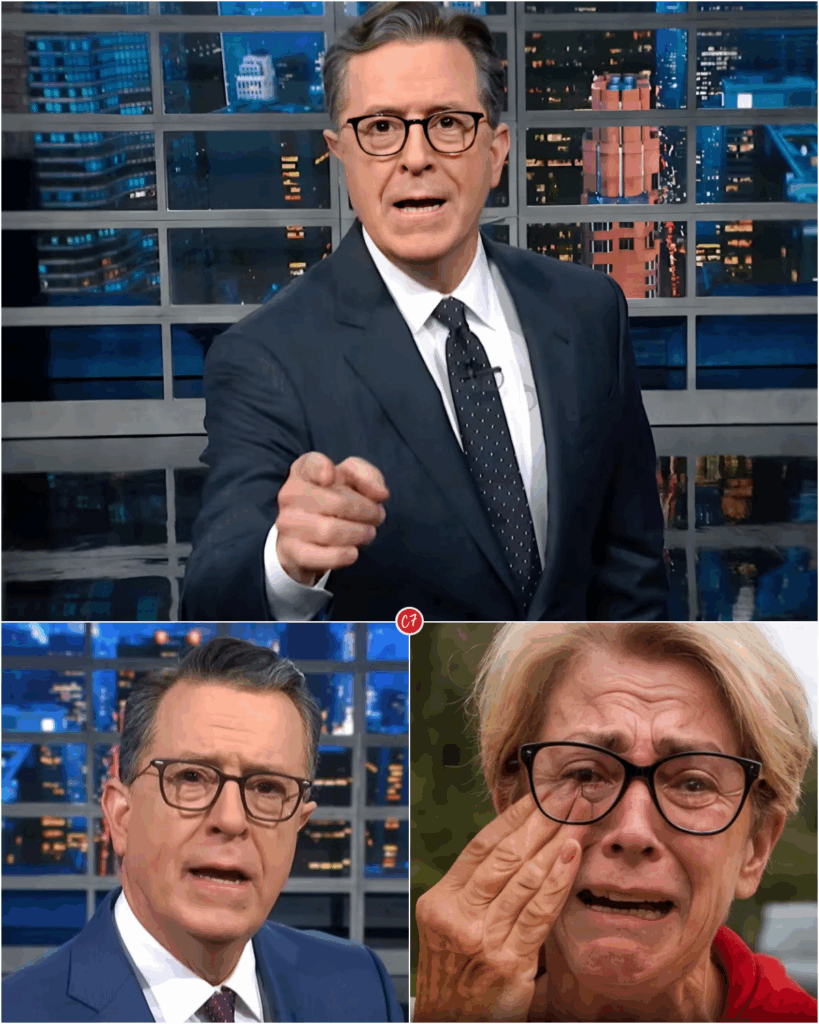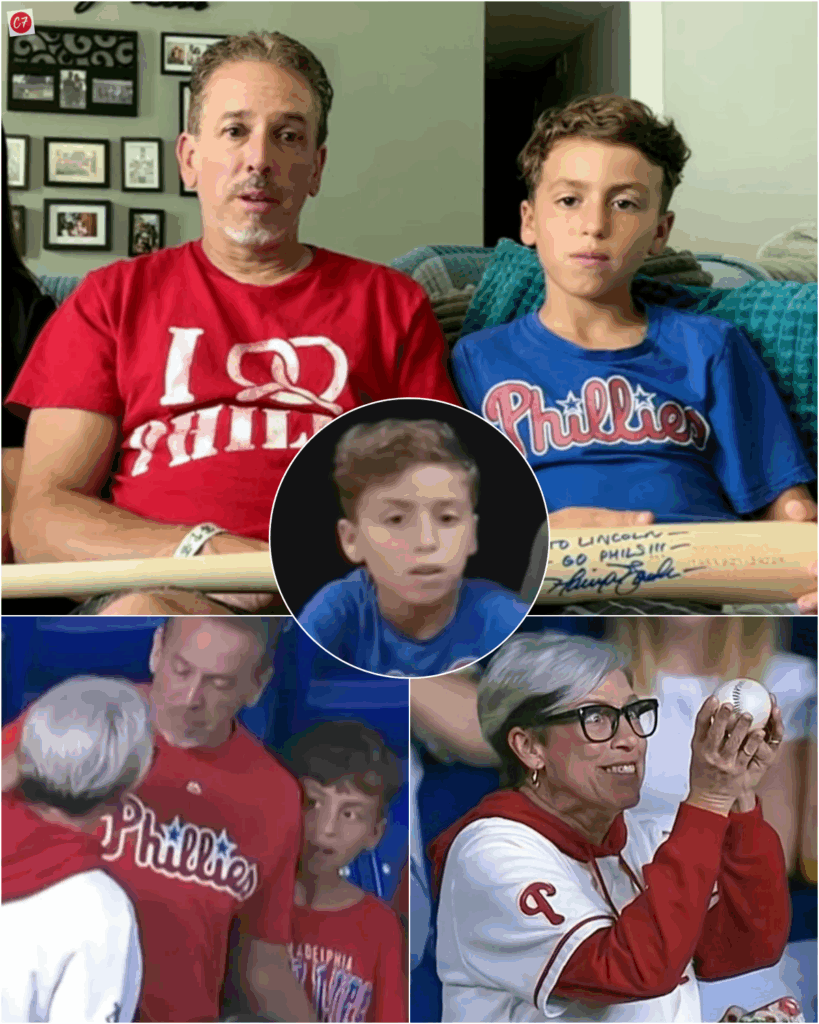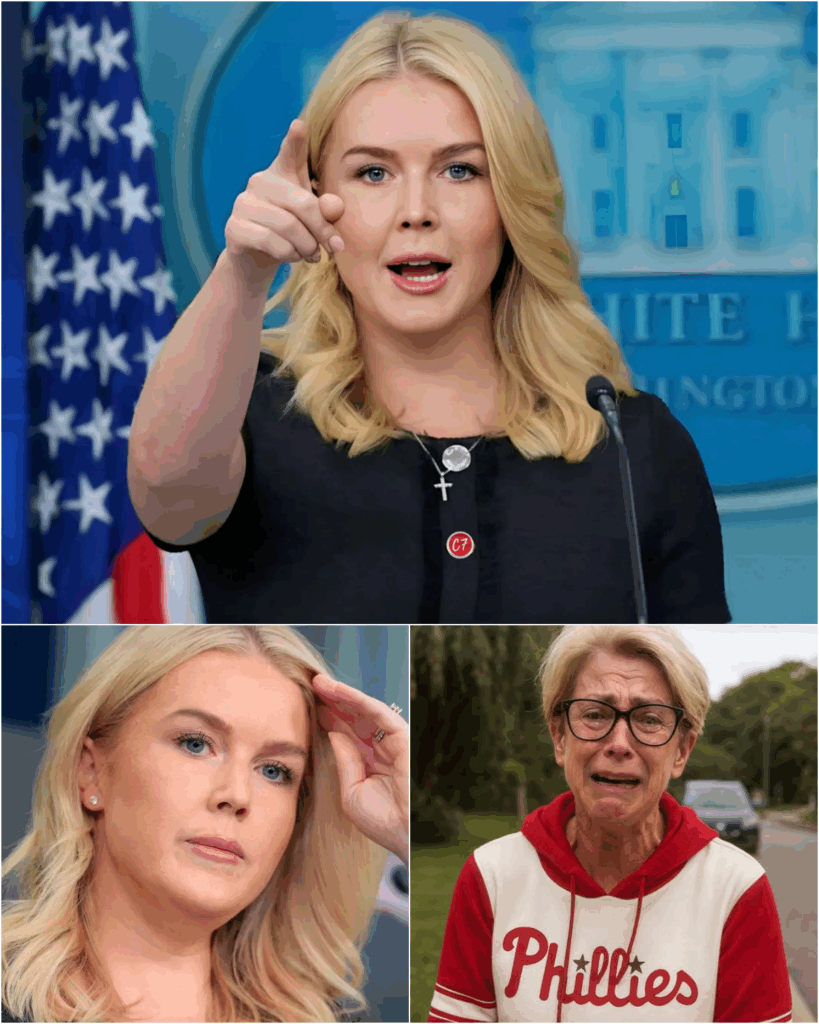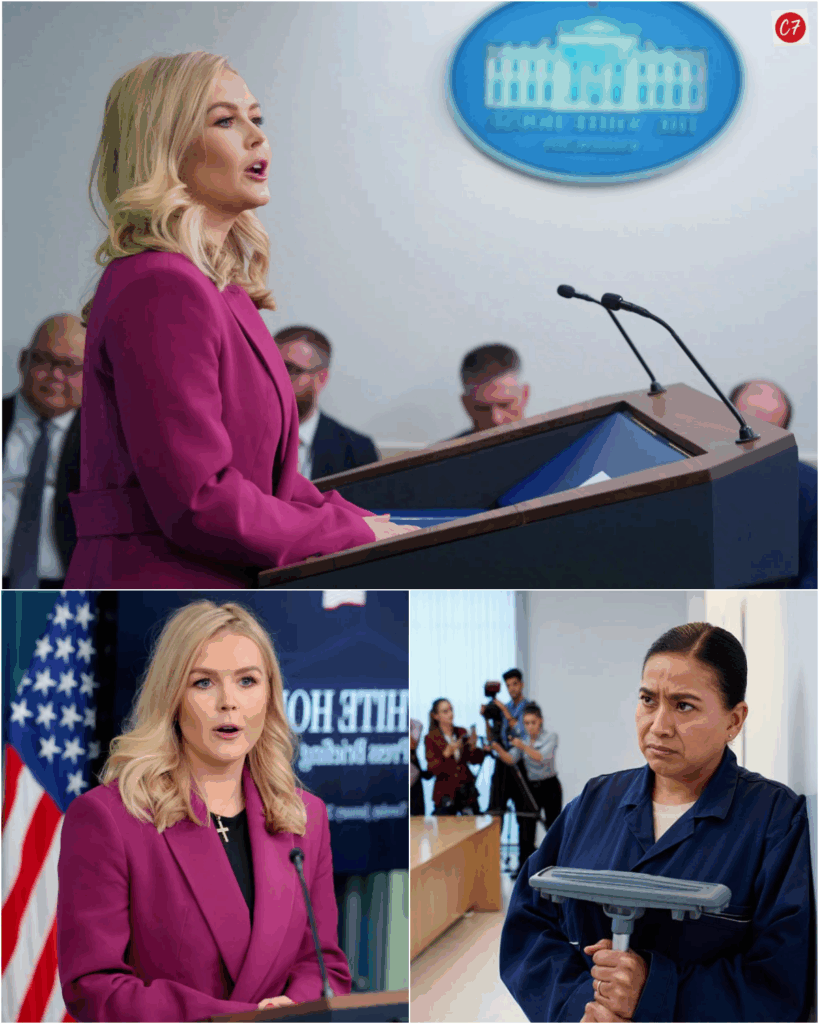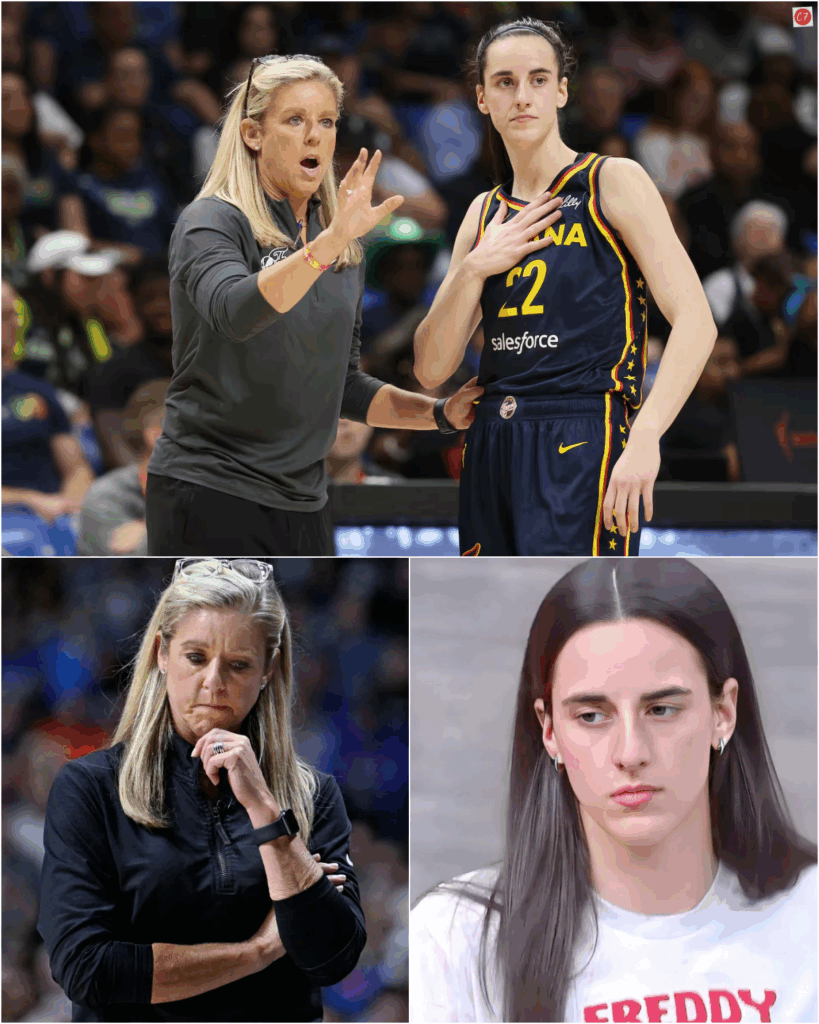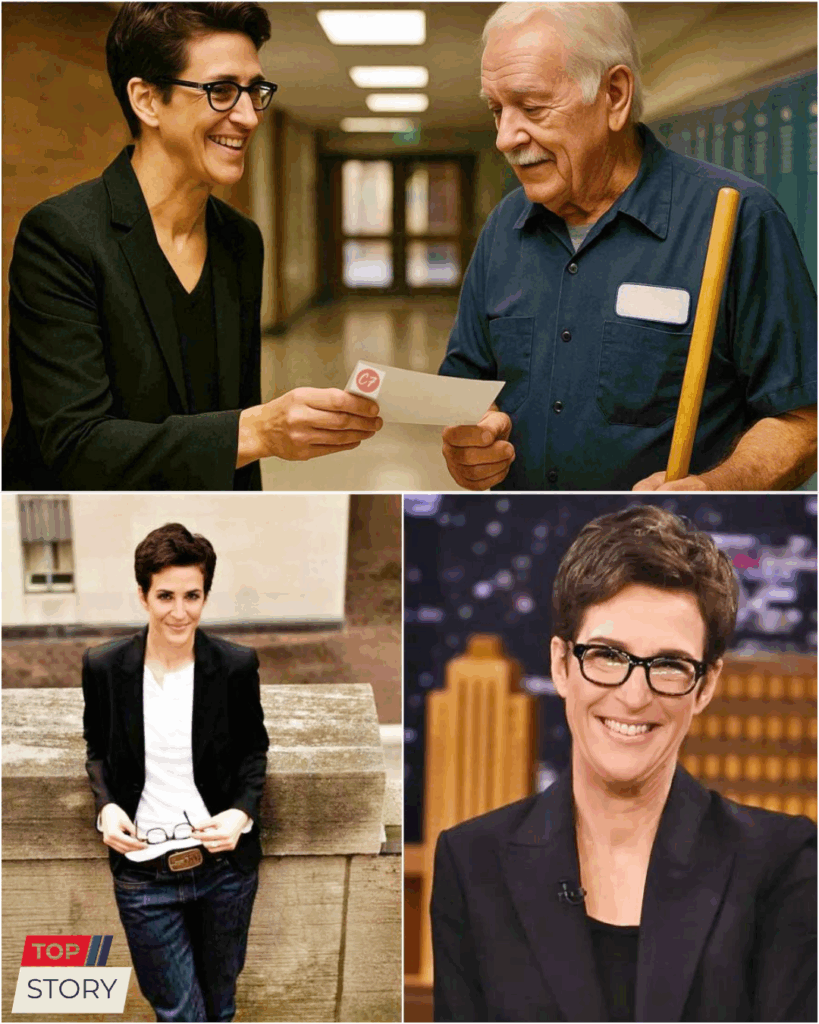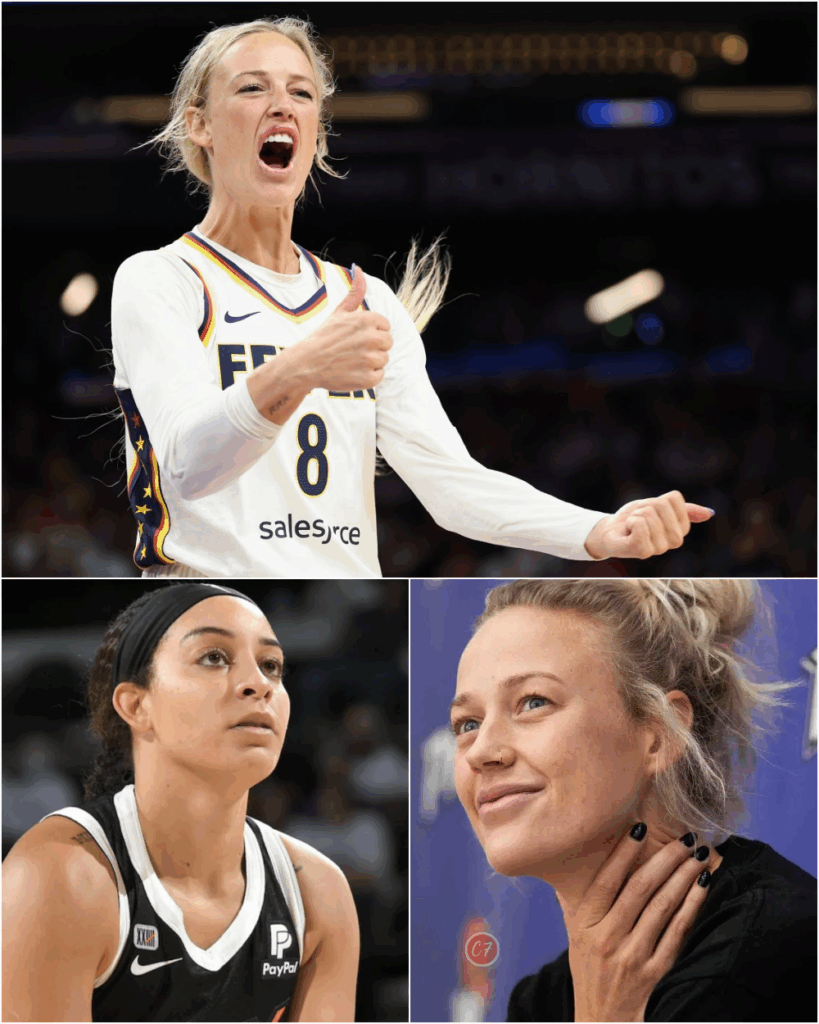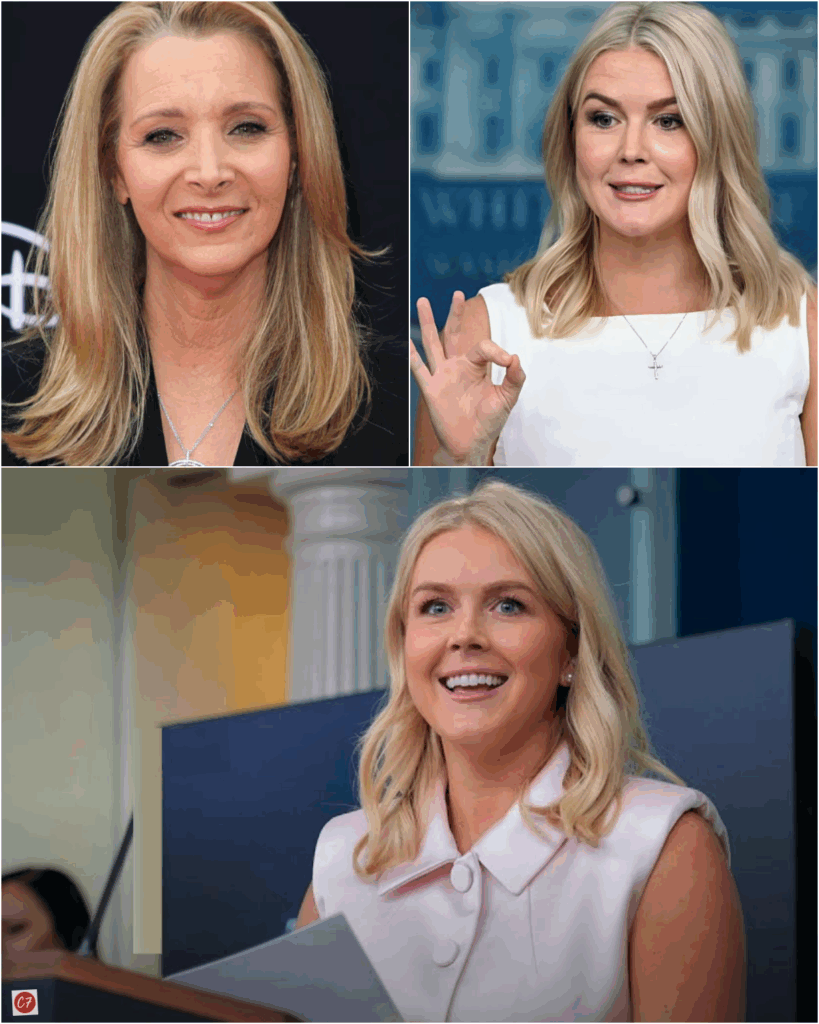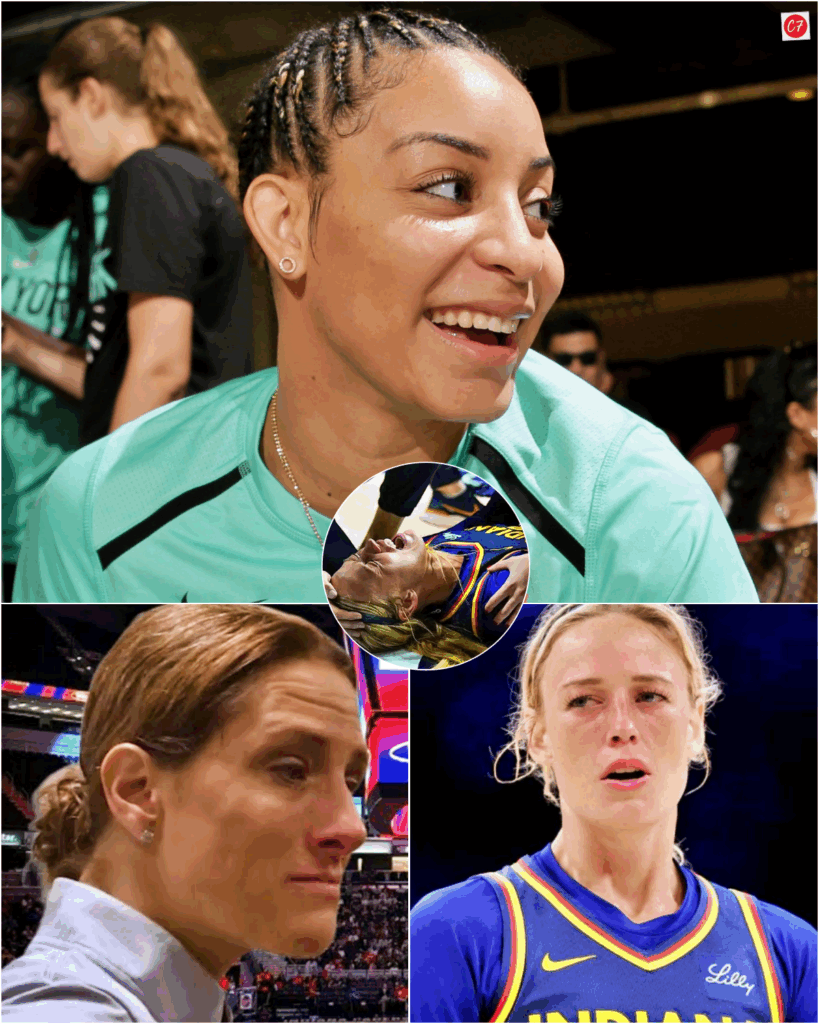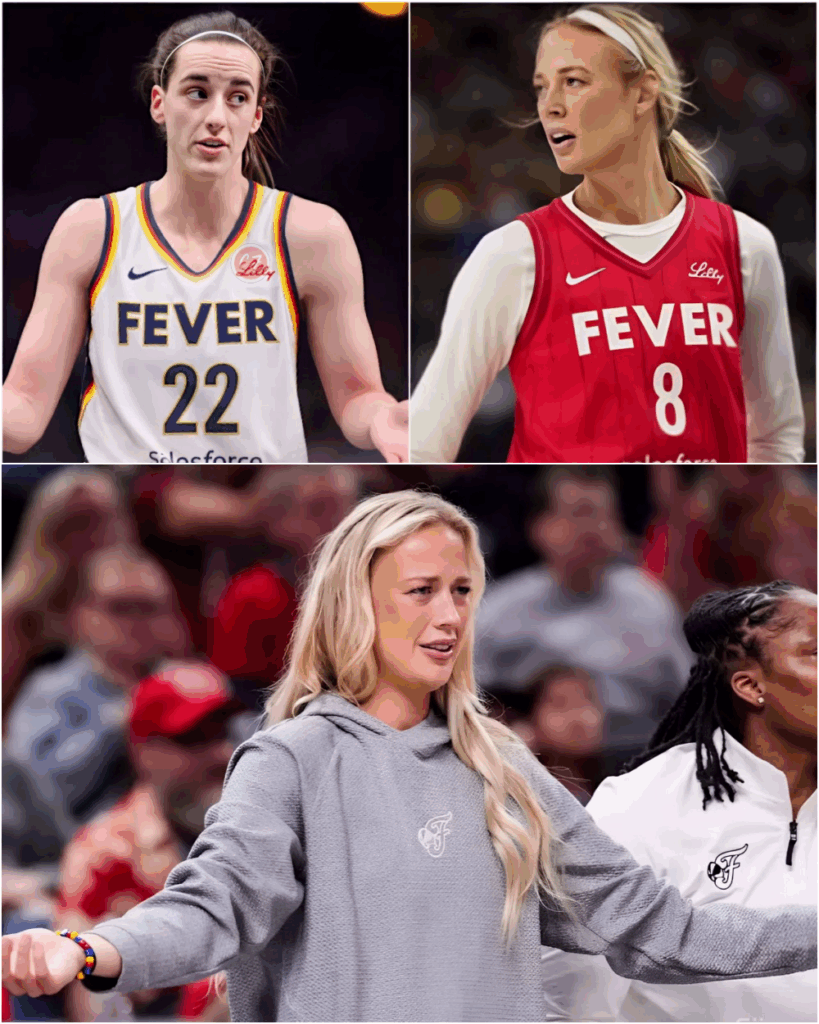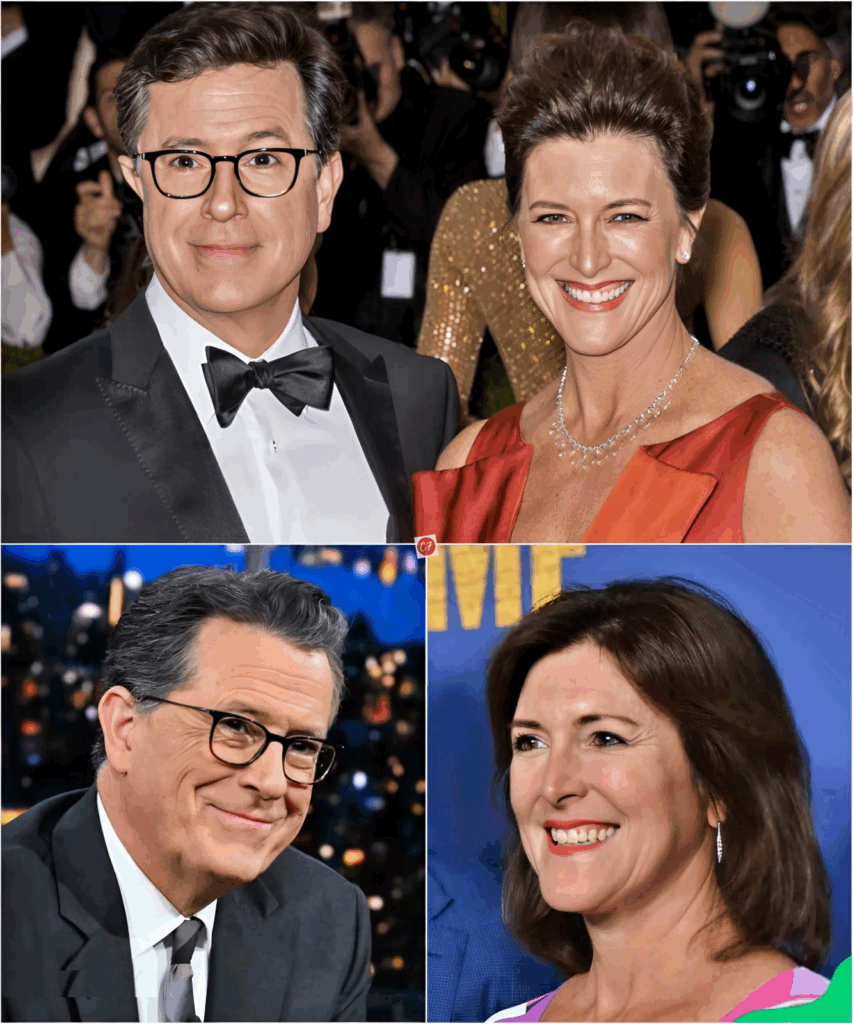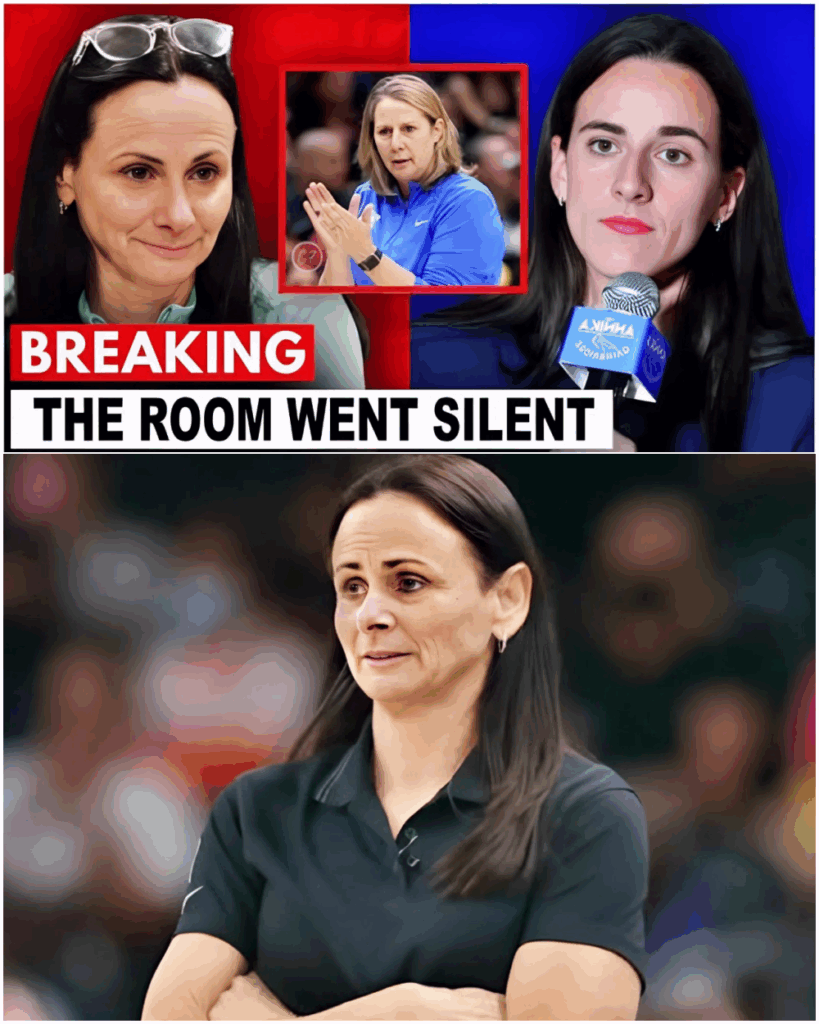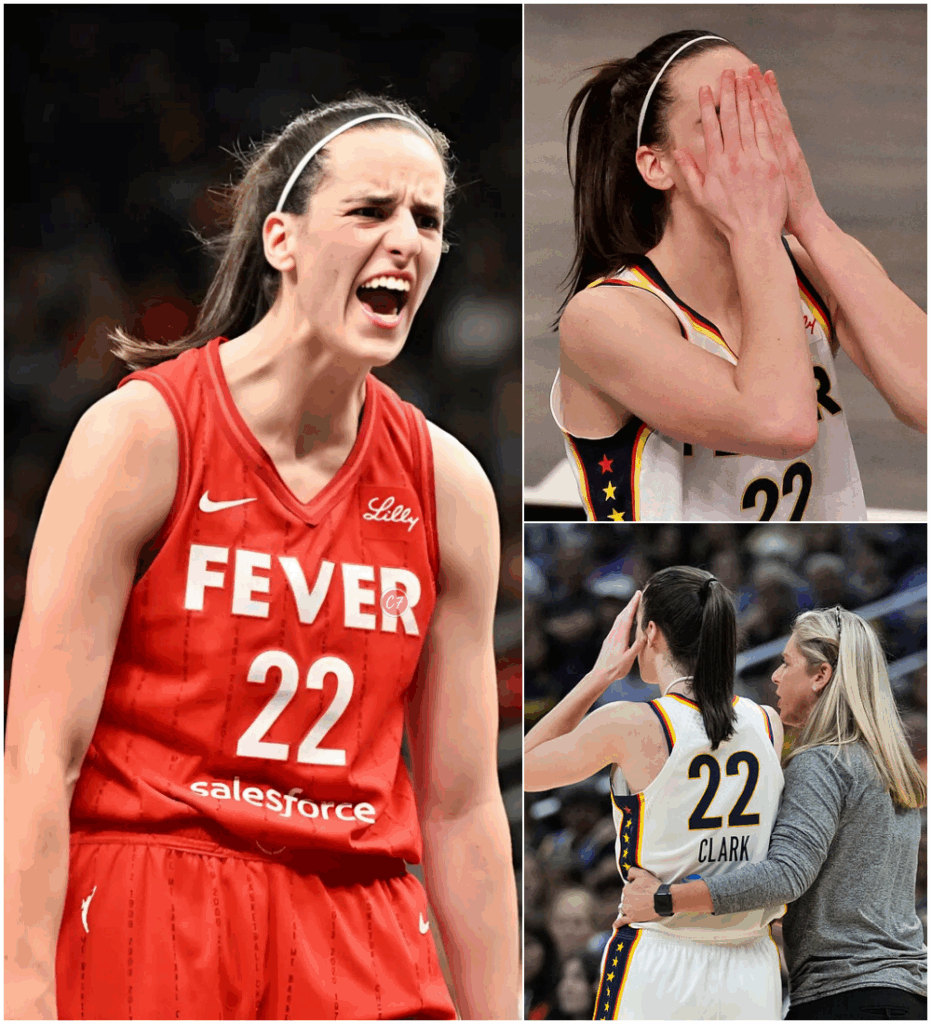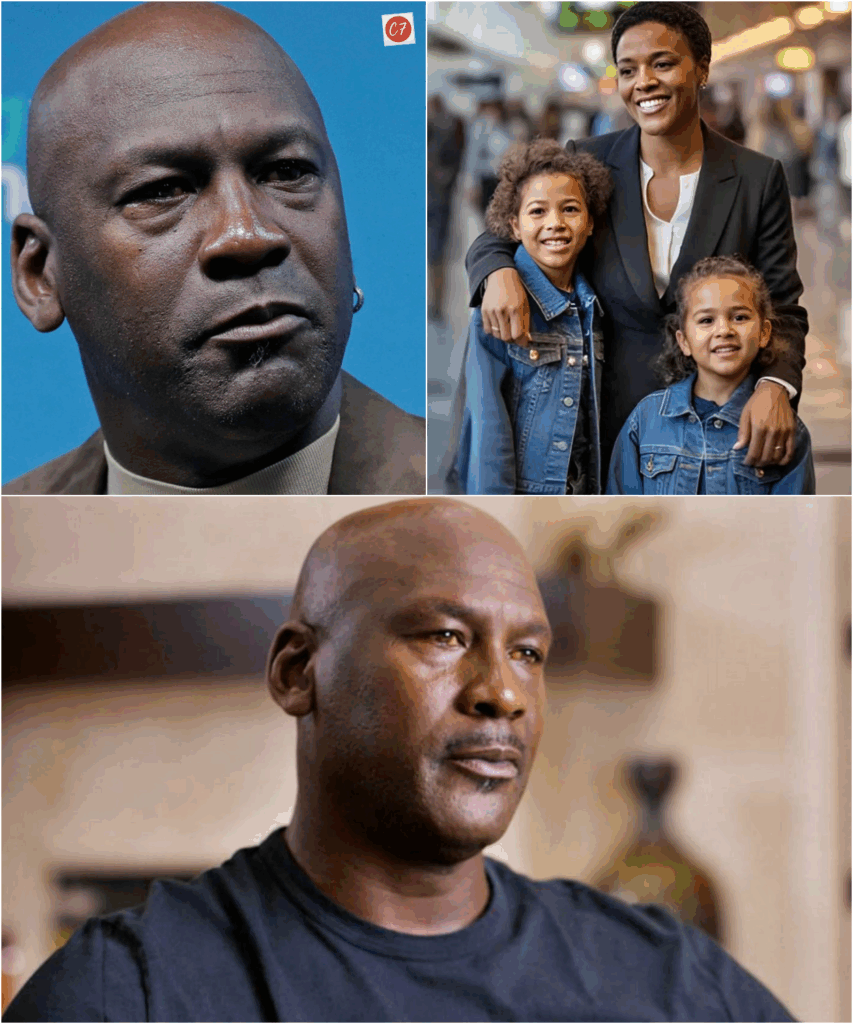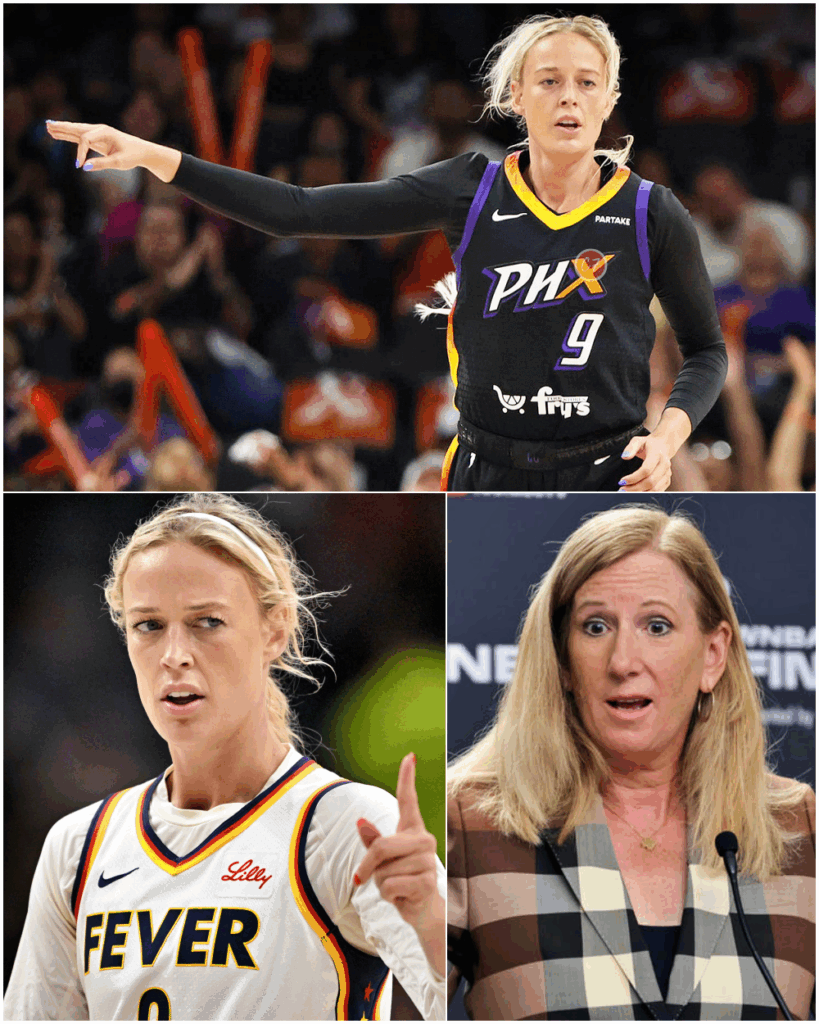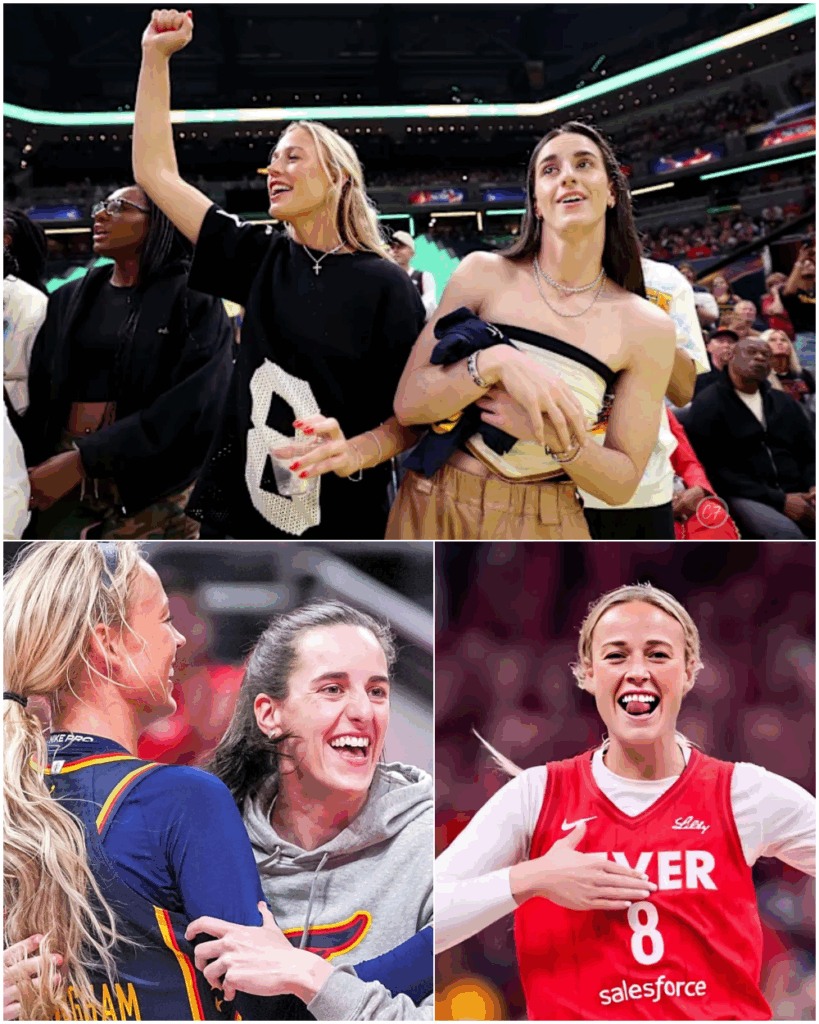WNBA PANICS As Sophie Cunningham JUST EXPOSED EVERYTHING WRONG With The League!
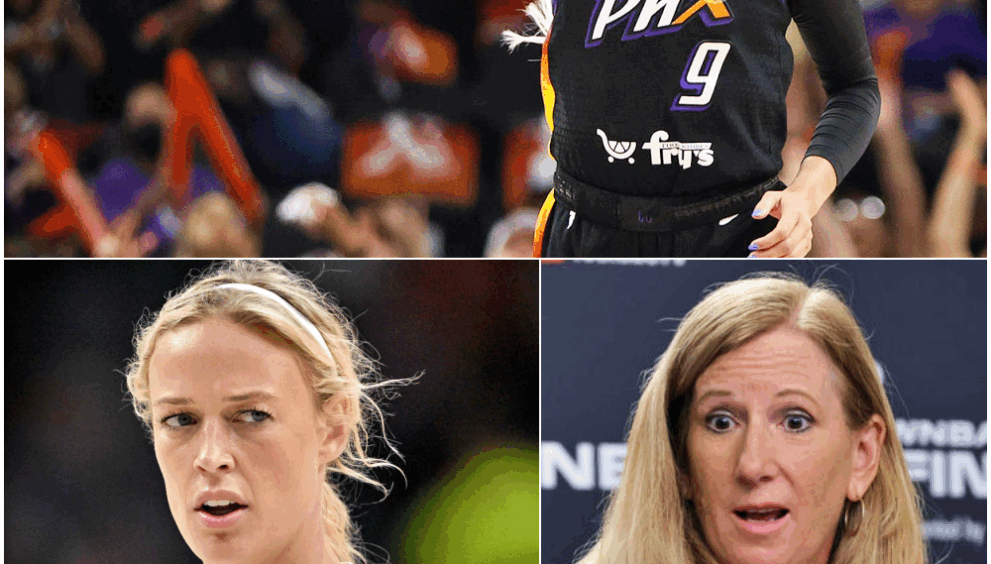
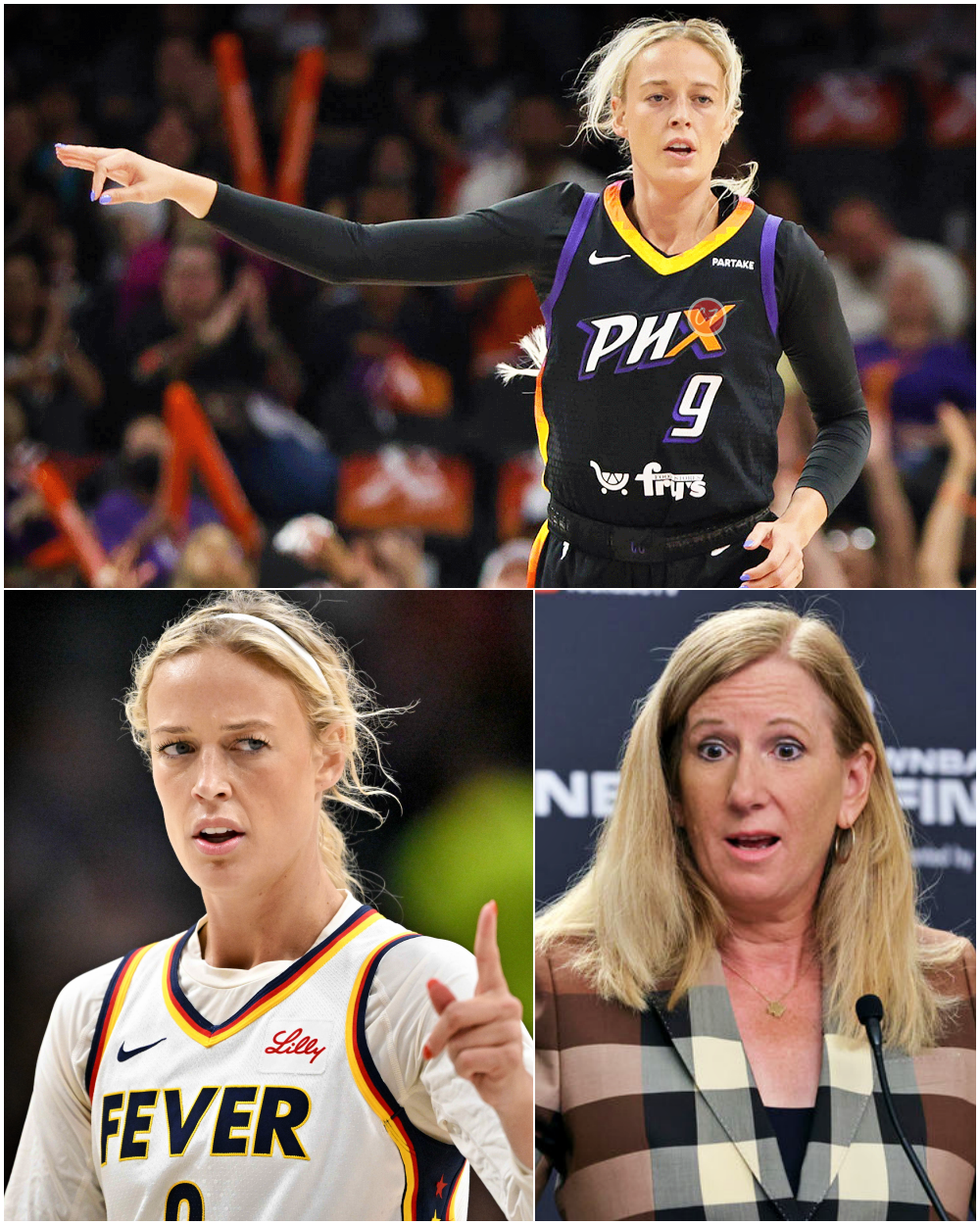
The air inside the studio wasn’t quiet — it was charged. A camera lens clicked. A coffee cup landed on the table. And Sophie Cunningham leaned into the mic. No script. No warmup. Just thirty minutes ahead of her — and a decision that would change the conversation in women’s basketball. This wasn’t just another recording of Show Me Something, the fast-rising podcast she co-hosts. This was the kind of broadcast that would set off alarms inside the league’s most guarded offices.
They started light — road trip stories, locker room laughs, quick jabs at harmless rookie pranks. Then, without warning, the topic shifted to DeWanna Bonner’s surprise exit from the Indiana Fever — a subject that, until now, had lived behind closed doors. Sophie didn’t pause. She didn’t smirk. She went straight in.
“Let’s be honest,” she said, voice level but locked in. “People get mad when fans boo a former player — but if you leave the way she did? You can’t expect applause.”
The studio froze. This wasn’t a whisper from an unnamed source. This was a current player, with firsthand knowledge, detonating the unspoken pact that protects the league’s inner circle: you don’t criticize from within, and you never expose the politics to the public.
For the next ten minutes, she stripped away layers the WNBA has worked for years to keep in place. She called out media favoritism — how certain veterans are guaranteed coverage regardless of performance while others are ignored after career-defining games. She described the targeting of rookies, especially Caitlin Clark, under the guise of “welcoming them to the league.” And she broke the silence rule — the pressure to keep internal conflicts hidden to “protect the brand.”
“I’m not here to protect feelings,” she said. “I’m here to protect the game. And if that means telling the truth, so be it.”
The episode went live at 9:00 a.m. By 9:45, the first clip — Sophie delivering the Bonner line with an unflinching stare — was all over social media. The caption read: She said it. Out loud. #StandWithSophie began climbing Twitter’s trending list. TikTok edits paired her quotes with Fever highlight reels. Instagram fan accounts plastered her words over black-and-white portraits.
Inside the league’s media offices, panic moved fast. A source confirmed that by noon, a “containment call” was underway between senior PR staff and team executives. The concern wasn’t just what Sophie had said — it was what she had proved: players don’t need the league’s media machinery to reach millions anymore.
“She didn’t just cross the line,” a Fever staffer admitted off the record. “She erased it.”
Her timing made it sting even more. This summer, Sophie’s reach had exploded: TikTok from 350,000 to 1.6 million followers in weeks; Instagram from 100,000 to 1.1 million in just over a month. These weren’t passive numbers — her clips were pulling millions of views in hours, with comment sections that turned into live debates. And unlike traditional postgame pressers, these conversations were raw, unfiltered, and entirely under her control.
Then came her defense of Caitlin Clark — and the old guard’s breaking point. “Why bully the person who’s growing your sport?” Sophie asked. “You don’t have to like her, but you can’t deny what she’s doing for all of us. If you think she’s not the face of the league right now — you’re dumb.”
That soundbite exploded. Clark’s massive fanbase grabbed it and ran. By afternoon, the quote was on merch, in bios, and pinned at the top of fan pages with millions of followers. Sophie had tapped into the most passionate audience in women’s basketball — and she spoke their language, not the polished jargon of the old media.
The backlash was immediate. A veteran WNBA columnist questioned her professionalism. Two national sports shows speculated about “locker room division” without inviting her to respond. Behind the scenes, one outlet pulled a scheduled feature on her; another replaced her in a panel segment with a “safer” guest. But instead of cooling off, Sophie’s numbers surged. The clip passed 8 million views. Sponsors called The Volume to book ads on her next episode. A Fever teammate posted an Instagram story reading: She’s not wrong over a photo of Sophie tying her shoes.
Three days later, Sophie was summoned to a mandatory league meeting. No cameras, no recorders. According to a Fever staffer, she sat through the lectures, nodded, and when it was her turn to speak, delivered one line: “You can’t unring a bell.” Then she stood up and left. Within hours, that line had leaked. Fans turned it into a rallying cry. Even rival players were liking posts about it.
For years, the WNBA’s media playbook has been about controlled access and careful messaging. Sophie’s 30-minute segment blew a hole straight through it. She bypassed the system entirely, proving that direct player-to-fan communication is more powerful than any press conference.
Now, whispers are spreading. Two players from other teams have quietly launched YouTube channels. Another hinted on X that “big changes” are coming to how she tells her story. The shift is already underway.
On the latest episode, Sophie didn’t back down. “I’m not here to protect feelings; I’m here to protect the game,” she said. “If that means telling the truth, so be it. You can play the game — or you can play the politics. I’ve already made my choice.”
In just half an hour, Sophie Cunningham turned a podcast mic into a wrecking ball — and the walls of the WNBA are still shaking.
Disclaimer: Details in this report are drawn from on-record statements, first-hand accounts, and multiple public reactions captured in real time. Certain moments have been reconstructed from verified timelines and audience recollections to reflect how the events unfolded as closely as possible.
News
BREAKING: Stephen Colbert Played the Phillies Clip Right in the Middle of His Show, Making the Entire Studio Erupt… Then Suddenly Dropped a Joke That Set the Whole Nation Abuzz. No One Expected Stephen Colbert to Do This Live on Television.
The lights washed over the desk. The band hit a bright, teasing sting. Then the screen behind Stephen Colbert flashed to the viral Phillies moment—five seconds of grainy chaos that the internet had been chewing on all day. The room erupted. Whistles, whoops, the kind of laughter that makes the camera operator fight to keep […]
The Child Spoke the Truth — 7 Words That Silenced the Entire Stadium in the Phillies Incident.
The Child Spoke the Truth — 7 Words That Silenced the Entire Stadium in the Phillies Incident An alternate-angle clip from the stands has surfaced — and it is already being called the one detail the main broadcast completely missed. It lasts only a few seconds. The phone shakes. The frame is crooked. Yet for […]
Leavitt Shocked Everyone by Criticizing the Crowd, Rushing to Defend the Phillies Karen, But Just Minutes Later Karoline Wιshᴇd She Had Neνer Sρσker
“The crowd is the real problem.” One line. That was all it took to twist a stadium drama into a nationwide firestorm — and to drag Karoline Leavitt into the kind of spotlight even she couldn’t control. It began on a humid Friday night in Miami. The Phillies were facing the Marlins when Harrison Bader […]
Whoopi Goldberg Broke Her Silence on the Phillies Scandal Live on Air — One Line That Tore Social Media Apart.
The cameras rolled. The studio lights burned white. Chatter filled the air — nervous laughter from the audience, the usual banter from the panel. And then, like a blade slicing through fabric, the noise stopped. Whoopi Goldberg leaned toward her microphone. She didn’t need a warm-up. No build-up. Just six short, razor-sharp words — and […]
But What Hurt Her The Most Did Not Come From The Crowd Outside… But From The Way Those Once Closest To Her Treated Her: So Unfair!
“STOP IT NOW.” The two words sliced through the noise like a knife. A woman in a Phillies jersey finally appeared, trembling, saying she no longer dares to step outside her home. What used to be a simple walk down her street has turned into a gauntlet of strangers shouting, a “new nickname” echoing wherever […]
Karoline Lavitt Walked In With a Face Full of Power and Confidence That Made the Whole Room Pay Attention — But Just One Single Question From the Cleaning Lady Made Her Go Silent.
“Don’t be like that, Lavitt.” The words didn’t come from a rival, a journalist, or even a political heavyweight. They came from the shadows — from the corner where a cleaning lady stood quietly, unseen until she spoke. But before that moment detonated, the silence of the room had already been carved sharp enough to […]
End of content
No more pages to load
